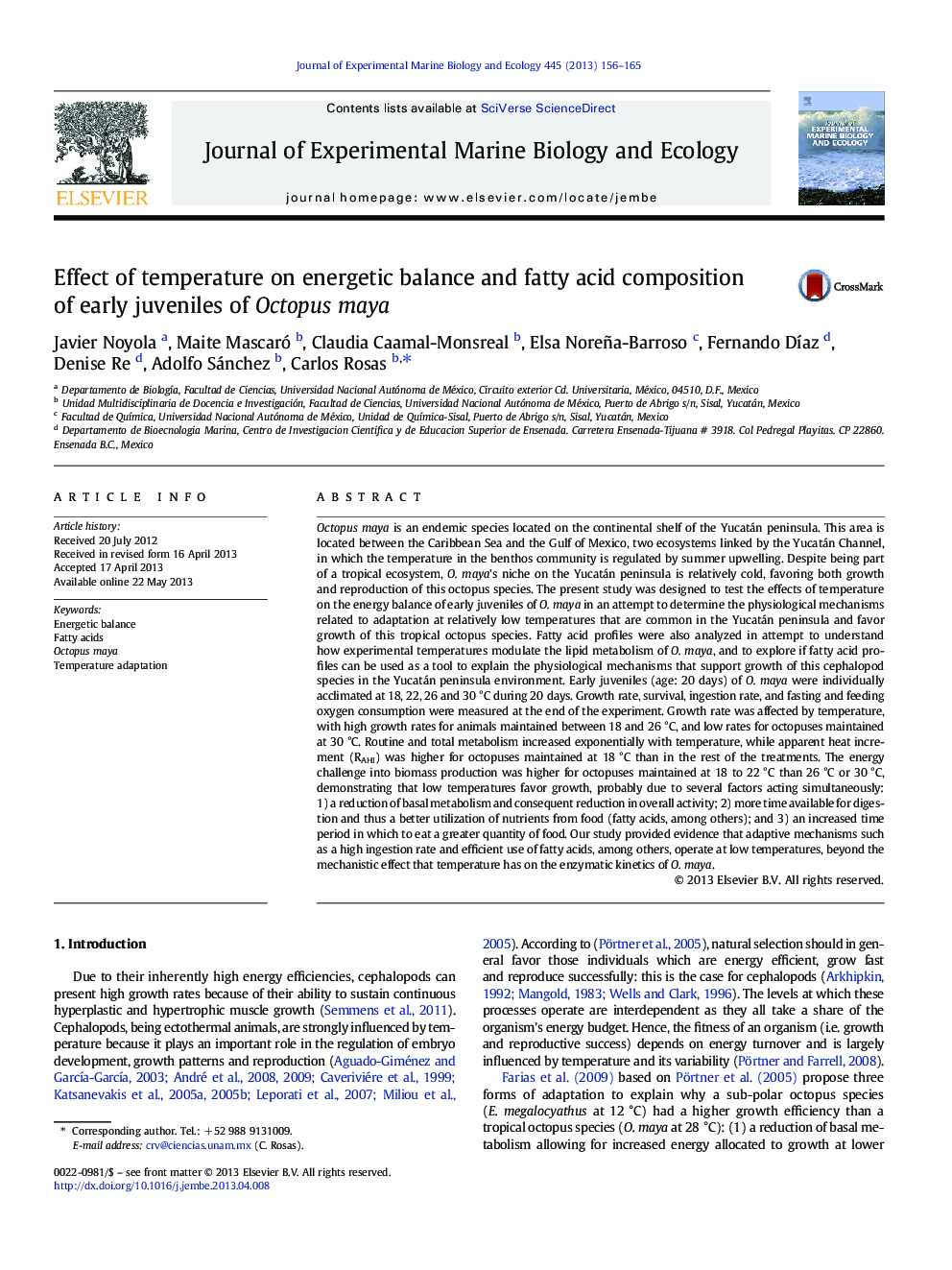| کد مقاله | کد نشریه | سال انتشار | مقاله انگلیسی | نسخه تمام متن |
|---|---|---|---|---|
| 4395640 | 1618430 | 2013 | 10 صفحه PDF | دانلود رایگان |

• Maximum O. maya biomass production was obtained between 18 and 22 °C
• Low temperatures favor growth thanks to reduction of basal metabolism
• Long digestion time and nutrients digestibility was favored at low temperatures
Octopus maya is an endemic species located on the continental shelf of the Yucatán peninsula. This area is located between the Caribbean Sea and the Gulf of Mexico, two ecosystems linked by the Yucatán Channel, in which the temperature in the benthos community is regulated by summer upwelling. Despite being part of a tropical ecosystem, O. maya's niche on the Yucatán peninsula is relatively cold, favoring both growth and reproduction of this octopus species. The present study was designed to test the effects of temperature on the energy balance of early juveniles of O. maya in an attempt to determine the physiological mechanisms related to adaptation at relatively low temperatures that are common in the Yucatán peninsula and favor growth of this tropical octopus species. Fatty acid profiles were also analyzed in attempt to understand how experimental temperatures modulate the lipid metabolism of O. maya, and to explore if fatty acid profiles can be used as a tool to explain the physiological mechanisms that support growth of this cephalopod species in the Yucatán peninsula environment. Early juveniles (age: 20 days) of O. maya were individually acclimated at 18, 22, 26 and 30 °C during 20 days. Growth rate, survival, ingestion rate, and fasting and feeding oxygen consumption were measured at the end of the experiment. Growth rate was affected by temperature, with high growth rates for animals maintained between 18 and 26 °C, and low rates for octopuses maintained at 30 °C. Routine and total metabolism increased exponentially with temperature, while apparent heat increment (RAHI) was higher for octopuses maintained at 18 °C than in the rest of the treatments. The energy challenge into biomass production was higher for octopuses maintained at 18 to 22 °C than 26 °C or 30 °C, demonstrating that low temperatures favor growth, probably due to several factors acting simultaneously: 1) a reduction of basal metabolism and consequent reduction in overall activity; 2) more time available for digestion and thus a better utilization of nutrients from food (fatty acids, among others); and 3) an increased time period in which to eat a greater quantity of food. Our study provided evidence that adaptive mechanisms such as a high ingestion rate and efficient use of fatty acids, among others, operate at low temperatures, beyond the mechanistic effect that temperature has on the enzymatic kinetics of O. maya.
Journal: Journal of Experimental Marine Biology and Ecology - Volume 445, July 2013, Pages 156–165